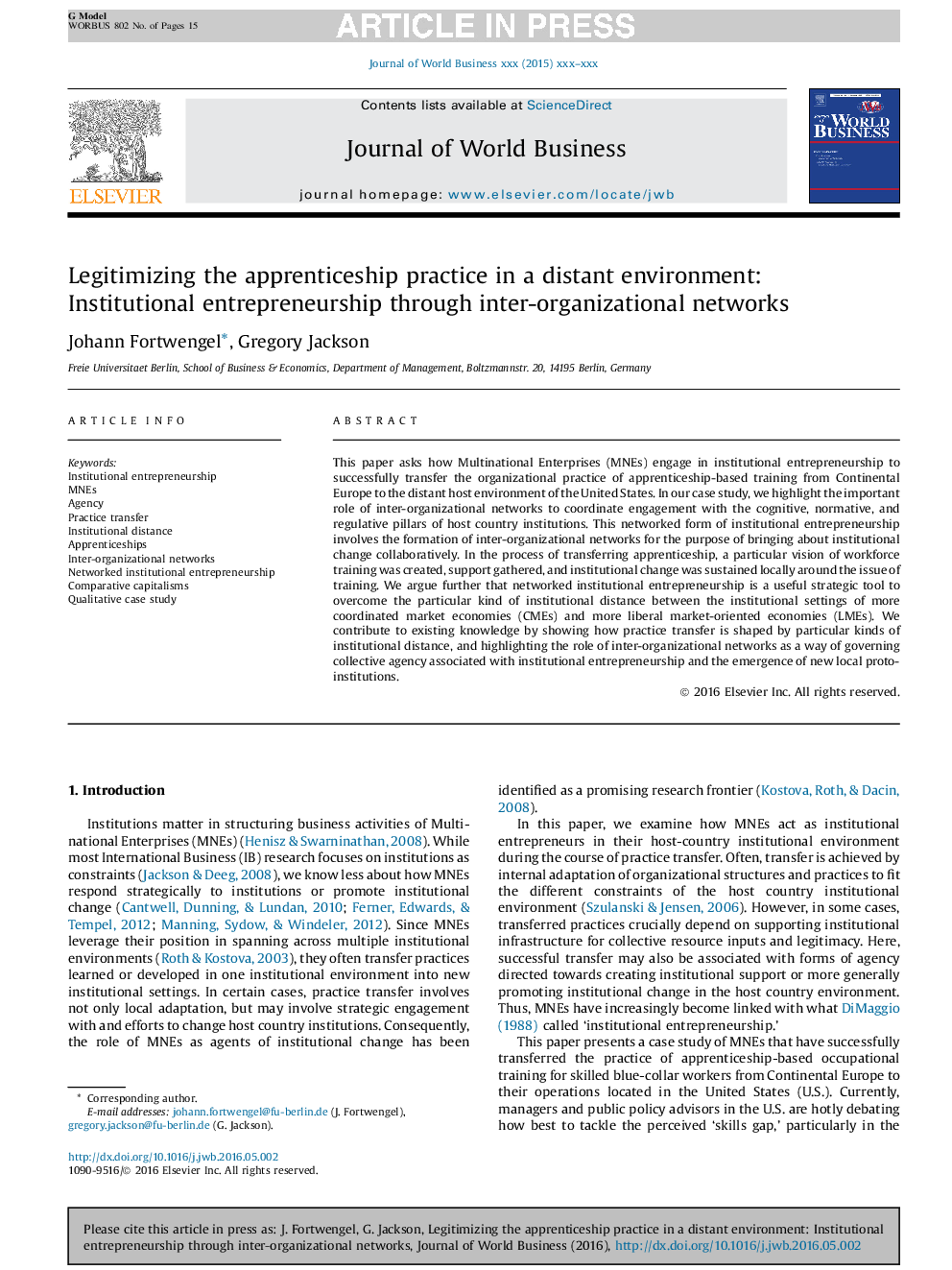| Article ID | Journal | Published Year | Pages | File Type |
|---|---|---|---|---|
| 5107182 | Journal of World Business | 2016 | 15 Pages |
Abstract
This paper asks how Multinational Enterprises (MNEs) engage in institutional entrepreneurship to successfully transfer the organizational practice of apprenticeship-based training from Continental Europe to the distant host environment of the United States. In our case study, we highlight the important role of inter-organizational networks to coordinate engagement with the cognitive, normative, and regulative pillars of host country institutions. This networked form of institutional entrepreneurship involves the formation of inter-organizational networks for the purpose of bringing about institutional change collaboratively. In the process of transferring apprenticeship, a particular vision of workforce training was created, support gathered, and institutional change was sustained locally around the issue of training. We argue further that networked institutional entrepreneurship is a useful strategic tool to overcome the particular kind of institutional distance between the institutional settings of more coordinated market economies (CMEs) and more liberal market-oriented economies (LMEs). We contribute to existing knowledge by showing how practice transfer is shaped by particular kinds of institutional distance, and highlighting the role of inter-organizational networks as a way of governing collective agency associated with institutional entrepreneurship and the emergence of new local proto-institutions.
Keywords
Related Topics
Social Sciences and Humanities
Business, Management and Accounting
Business and International Management
Authors
Johann Fortwengel, Gregory Jackson,
